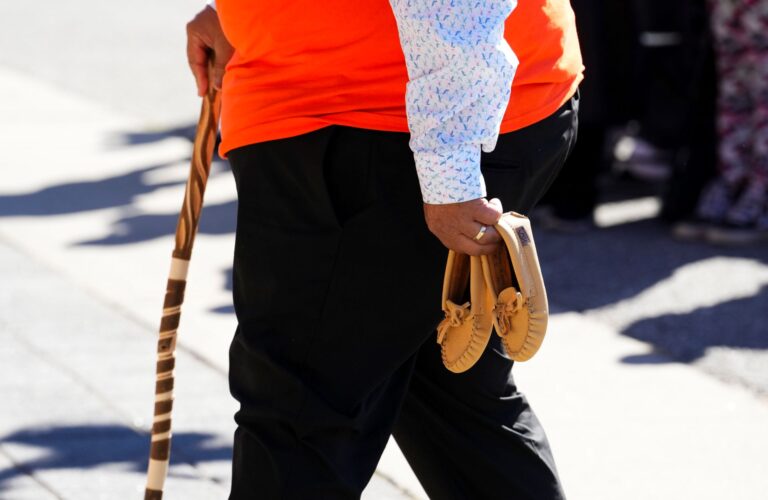Justice Minister Sean Fraser tabled the federal government’s new and much-anticipated hate-crime legislation in September, and given Canada’s constant increase of reported hate-related incidents, it came not a moment too soon.
Across Canada, police-reported hate crimes have more than doubled since 2018. Montreal alone reported 375 hate crimes and 202 hate incidents in 2024, year-over-year increases of 6.2 and 18.1 per cent.
The timing of the new legislation matters, but the real measure on this government will be around how effective the new legal framework will be, and the results it achieves.
The familiar rise of anti-Indian racism in Canada
The chronic failure to pass social legislation
Canada needs to get on with tackling racism in concrete ways
In recent years, the paradox is that Canada has become better at counting hate than at deterring it. Communities are urged to report incidents, then politicians condemn them, and police do the tally.
Prosecutions, however, remain scarce and convictions rarer still. Without a clear enforcement structure — people, skills and processes — any new law risks becoming another gesture that reassures on paper but leaves targeted communities exposed.
Ambitious bills and fragmented tools
This is not the first time Ottawa has promised such bold reforms. In June 2021, the government tabled Bill C-36, which sought to amend the Criminal Code and the Canadian Human Rights Act to address online hate. It included new recognizance provisions, civil remedies and broader definitions of hatred.
Bill C-36 died when Parliament was dissolved two months later for the 2021 federal election — a procedural outcome more than a political failure. In early 2024, the Liberals tried again with Bill C-63, the Online Harms Act, built on C-36’s framework. It stalled out in the House of Commons amid criticisms and a lengthy filibuster. Then it, too, died when Parliament was prorogued in January 2025.
There has also been landmark case law.
In 1990, Holocaust denier Jim Keegstra, having been fired from his job as a high-school teacher, unsuccessfully appealed to the Supreme Court of Canada to overturn his conviction for wilfully promoting hate against an identifiable group. The court concluded the limits the Criminal Code placed on Keegstra’s freedom of expression were justifiable.
But the case set a high evidentiary bar in establishing that prosecutors must prove intentional, public advocacy of hatred beyond reasonable doubt. That threshold has left some Crowns reluctant to pursue prosecutions in less clear-cut cases.
In another example — Saskatchewan Human Rights Commission v. Whatcott (2013) — the Supreme Court did uphold restrictions on the distribution of materials that exposed gay men to hatred. However that case unfolded under human-rights legislation, not the Criminal Code. Remedies were civil, not criminal.
The tools Canada has to address hate are fragmented, inconsistently applied, and often toothless in criminal terms.
The current law, and why enforcement fails
The Criminal Code has relevant provisions that appear robust. Sections 318–320 outlaw the advocacy of genocide, the incitement or promotion of hatred, and provide for the seizure of hate propaganda. Section 718.2 makes hatred or bias against an identifiable group an aggravating factor in sentencing.
Prosecutions falter nonetheless. Charges pertaining to hate are often downgraded to mischief or threats because the Keegstra test requires prosecutors to prove intentional public advocacy of hatred beyond reasonable doubt — a high evidentiary threshold that discourages many Crowns from pursuing such cases.
And once again, the chance to build jurisprudence evaporates.
Montreal’s experience illustrates this. Police in the city acknowledged a surge in hate crimes in their 2024 annual report but said little about related charges, prosecutions and convictions. Hate circulates in multiple languages, often online, but without committing more resources to, say, language translation or forensic support, evidence often ends up being deemed inadmissible in court.
Too often, victims have seen no substantial legal results after they come forward about their experiences. The public’s trust erodes when hate appears in statistics but rarely in judicial outcomes.
The enforcement gap is not theoretical.
In Montreal, a man who assaulted a Jewish father walking with his kids in a park was found not criminally responsible due to mental disorder, an outcome that frustrated Jewish organizations in the city.
NCR rulings are part of a humane justice system. But when viewed against a rising tide of alarming hate incidents, communities often see a system that is not accountable for the harms it acknowledges.
Hate incidents can be pursued effectively, however, when authorities commit sufficient resources. In March, Toronto police laid rare charges of advocating genocide after a spree of harassment, arson and vandalism against five synagogues and a Jewish community centre.
Mounting the prosecution required co-ordination from multiple units of the police service as well as early Crown input — and confidence in applying sections 318–320.
Counting beyond incident totals
Statistics Canada’s yearly collection of police-reported crime statistics found that 2024 brought a sixth consecutive increase in hate crimes. This compilation is telling, but as a tool for change it is insufficient.
Ottawa should mandate the federal agency to publish quarterly dashboards that also track charges, prosecutions and convictions.
It is significant that Justice Minister Fraser’s outline for the new legislation includes a plan that gets past rhetoric and lays out specific intentions, promising a hate-crime bill now, with bail and violent-crime reforms to follow.
That sequencing matters, but strong enforcement tools will be essential for this bill to finally achieve the party’s ambitions to fight hate crime.
In a politicized landscape of Conservatives and Liberals sparring over competing concepts of bail reform, actual deterrence lies at the intersection of charging standards, appropriate bail, and sentencing.
Lessons from abroad: the power of specialization
As Ottawa prepares to take more meaningful strides in confronting hate crime, there is no shame in drawing from strategic tactics being tried in other democracies:
- In the U.K., the Crown Prosecution Service has created specialized hate-crime units that build prosecution expertise and reduce systemic hesitation to act.
- Germany proactively drives the monitoring of online hate by funding dedicated multilingual analysts.
- France attempted to pass one of Europe’s strictest online hate-speech laws in 2020, requiring platforms to remove hateful content within 24 hours or face heavy fines. Its Constitutional Council struck down the core provisions on free-speech grounds, illustrating both the ambition and the difficulty of legislating online hate in democracies.
The U.S., meanwhile, maintains FBI hate-crime statistics and a Department of Justice division, embedding hate-crime enforcement within its civil-rights and public-safety framework, steps that go beyond Canada’s focus on statistics.
To have real impact, Ottawa’s new hate-crime bill must establish, fund and train specialized prosecution units, specifically on sections 318–320 of the Criminal Code and on digital evidence so that prosecutors are less inclined to vacillate when faced with complex hate-crime files.
For instance, developing linguistic expertise so investigators can examine hate content in minority languages would greatly help in properly translating, transcribing and admitting key evidence in court. Protection under the law should not be weakened by the legal system’s linguistic blind spots.
Finally, the upcoming reforms must guarantee support for victims and witnesses all the way through prosecution to verdict — not just during the initial complaint stage. Otherwise, communities that face repeated targeting cannot be expected to engage with enforcement efforts.
Such fundamental steps are what transform recognition of hate crime into deterrence.
The case of the Montreal man being found not criminally responsible after a Jewish man was attacked reinforces that communities will accept humane outcomes if they also see consistent deterrence. Right now, they don’t.
Unless enforcement is prioritized, the new bill could amount to a replay of ambition without results.
Beyond any doubt, Canada has become proficient at counting hate. Lawmakers now have the chance to prove we can also punish it. Victims have shown courage by reporting; it is time for Parliament to show equal valour by closing the enforcement gap.











